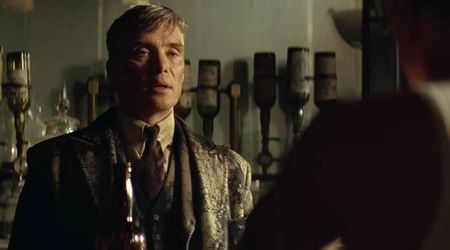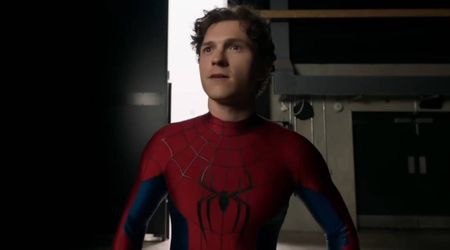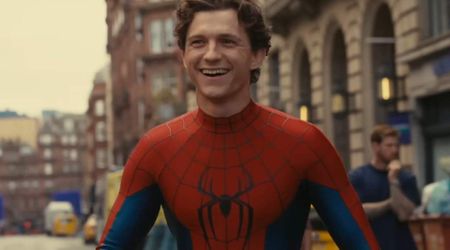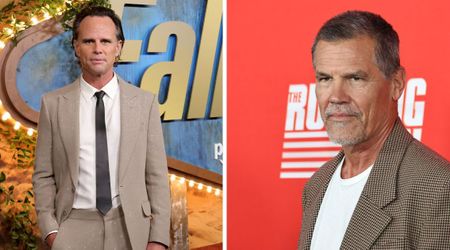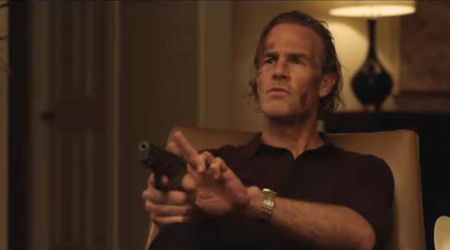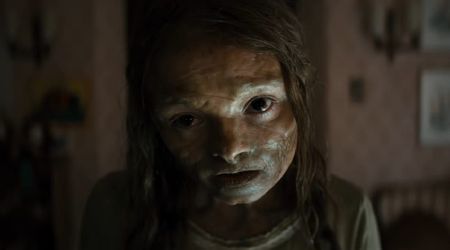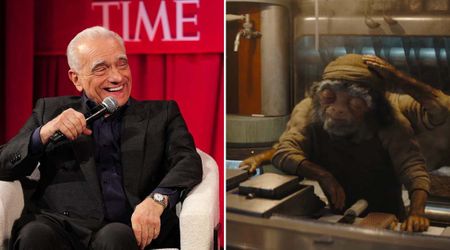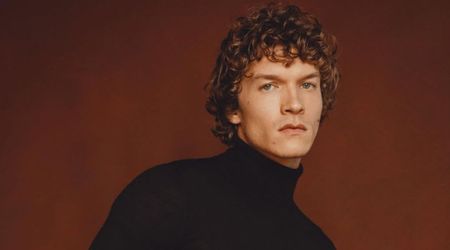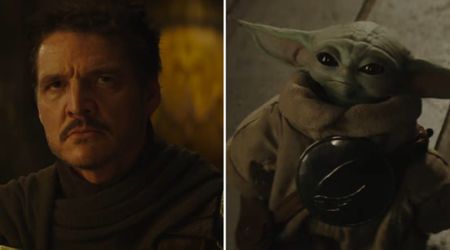Bobby Kennedy for President: A tale of the greatest president America never had

The 1960s were akin to the dark ages for a progressive nation like America. Having prided itself in providing opportunities for all and the so-called 'American Dream,' the country was ironically in the throes of a civil rights movement led by Martin Luther King Jr., which demanded the end of segregation and equality for oppressed African Americans everywhere.
But that was not all. Tensions with Cuba were at an all-time high and the embarrassment of the debacle that was the Bay of Pigs still stung; the cold war was at its zenith; despite a boom in the economy following the end of World War II, poverty was still strife; there was political upheaval after the tragedy that was John F. Kennedy's assassination; the failure of CIA's MKUltra sparked the counterculture movement and flooded the black market with LSD and a host of other drugs; and most urgently, American soldiers were dying in the thousands an ocean away in the rainforests of Vietnam for a cause that seemed to have long been lost.
However, there was hope. There was always hope. Hope that the American people clung on to in expectancy of a better future. That very same hope that had made the nation not only survive, but thrive through two world wars and a great depression. And a hope that presented itself in a never-say-die attitude that had made the country the greatest in the world. That hope embodied itself in the form of two once-in-a-generation pioneers of civil rights: Martin Luther King Jr., and Robert F. Kennedy. But that hope would be snuffed out in the short span of a year: 1968.
April 4, 1968, 6:01 pm: Martin Luther King Jr. is fatally shot by James Earl Ray as he's standing on the second-floor balcony of the Lorraine Motel in Memphis. Robert Kennedy, who was on his way to Indianapolis at the time and had espoused King's ideals and was supportive of the movement, gave a short, improvised speech to his supporters informing them of the assassination and urging them to continue King's ideal of nonviolence. Kennedy was primed to lead the nation into a new era but fate had other plans.
June 5, 1968: Kennedy's highly-anticipated run for the U.S presidency was gathering steam. He had just scored a major victory in the California primary and addressed gathered supporters shortly after midnight in a ballroom at The Ambassador Hotel in Los Angeles.
As he made his way to the press room through the hotel kitchen, ignoring advice from his bodyguard, he was confronted by 24-year-old Palestinian Sirhan Bishara Sirhan and shot three times with a .22-caliber revolver. He was mortally wounded and died the next day at the Good Samaritan Hospital.
And just like that, in the span of two months, the country had lost two visionaries.
While the ins and outs of MLK's life has been comprehensively covered since then, and it seems as though the younger Kennedy has faded into the background and not received the attention nor the praise he deserved.
Netflix's latest 4-part documentary, 'Bobby Kennedy for President,' intends to shed a light on the unassuming but charismatic Kennedy's transformation from Attorney General to a presidential hopeful.
Set for a global release on April 27, the documentary will utilize rare and never-seen-before archival footage to guide you through the turbulent 60s from Kennedy's POV. With numerous interviews with RFK confidantes and staffers, it will reveal what America gained and lost in the life, vision, politics, and hope of a man who dared to dream.
Born on November 20, 1925, as the seventh child of wealthy businessman and leading figure in the Democratic Party, Joseph P. Kennedy Sr., and philanthropist/socialite Rose Fitzgerald Kennedy, his father's political connections and ambition always meant that RFK was bound for a life in politics.
While Kennedy Sr. initially focused his attention on his eldest son, Joseph Jr., expecting that he would enter politics, his hopes fell on JFK after Joseph did not survive World War II.
Though RFK was not necessarily close with his older brother in their initial years, the pair would often bond over walks in their childhood where JFK would tell him of the stories of heroes and adventures that he had read. He was written off by his father and dubbed the 'runt' of the family because Kennedy Sr. felt that Bobby was 'too soft' on others.
To his mother's pleasure and his father's distaste, he had a relatively gentle personality compared to the rest of his siblings. He was dutiful, devoutly Catholic, affectionate, and obedient, always redoubling his efforts in his attempts to please his parents. And while he did slowly drift away from his father as he grew older, he still developed that "tough as nails" persona that Kennedy Sr. always sought to instill in him; one that would prove priceless for his future political endeavors.
RFK also personified a humility and never-say-die attitude which was irresistible to the American public, the latter of which was best summed up by an incident in college. Having entered Harvard as a junior and measuring in at an average five feet ten and 155 pounds, no one gave him a chance at football, a sport that, even then, opened innumerable opportunities and scholarships.
But he still made it to the varsity football team as an end, becoming a starter and scoring a touchdown in the first game of his senior year before breaking his leg in practice. And despite his relatively small size, he was reportedly a fearless hitter, once tackling a 230-pound fullback head-on.
Wally Flynn, another football player on the team, recalled how he looked up in the huddle after one play to see him crying after he broke his leg but that he disregarded the gruesome injury and kept playing. He even managed to earn his varsity letter when his coach sent him in wearing a cast during the final minutes of a game against Yale. He had made his father undeniably proud.
His character was best summed up by biographer Judie Mills, who succinctly wrote: "His parents' conflicting views would be echoed in the opinions of millions of people throughout Bobby's life. Robert Kennedy was a ruthless opportunist who would stop at nothing to attain his ambitions. Robert Kennedy was America's most compassionate public figure, the only person who could save a divided country."
Despite his family's political connections and wealth, the junior Kennedy started his political journey on the bottom rung of the ladder. He served actively in JFK's campaign for the U.S Representative Seat in Boston in 1946, and his affiliation for social issues was apparent in the six articles he published for the Boston Post after his graduation from Harvard in 1948.
Having sailed on a six-month tour of Europe and the Middle East, Kennedy wrote four first-hand accounts of the tensions that permeated Palestine, describing the bravery of the Jewish people and expressing fear on how the hatred between them and the Arabs would erupt in a war.
In 1952, despite boasting a comfortable position in the U.S Department of Justice prosecuting fraud cases in New York, Kennedy resigned to manage his older brother's successful U.S Senate campaign in Massachusetts. The victory elevated JFK to national prominence and signaled his intention to run as a serious presidential candidate for the Democratic party.
After a brief period of political limbo where he was at a professional and personal nadir, Kennedy served as an aide to the Democratic party's presidential nominee for 1952 and 1956, Adlai Stevenson, to learn the tricks of the trade. He would then aid his brother's successful 1960 presidential campaign and be controversially appointed as the Attorney General, marking a meteoric rise.
Many called him inexperienced and unqualified, claiming JFK had only nominated him for the position at the behest of his father. But author James W. Hilty glimpsed the younger brother's rising influence, writing that he "played an unusual combination of roles - campaign director, attorney general, executive overseer, controller of patronage, chief adviser, and brother protector," and that no previous AG enjoyed such a clear influence on policy during an administration.
One got the feeling that he was preparing for a future presidential run himself. He was heavily relied upon by his brother for political advice and counsel and served as JFK's closest and most trusted confidant. His widespread authority over every cabinet department also led to the Associated Press dubbing him as 'Bobby - Washington's No. 2 -man.'
As Attorney General, Kennedy cracked down on organized crime and the mafia, with convictions against organized crime figures rising by an astounding 800% during his tenure. He was also very vocal on the administration's commitment to civil rights and his support to Martin Luther King Jr., working tirelessly to desegregate Capitol Hill and even going as far as criticizing the then Vice President Lyndon Johnson for his failure to desegregate his own staff.
When asked in an interview in 1962 "What do you see as the big problem ahead for you, is it crime or internal security?" Kennedy famously had replied "Civil rights."
But his brother's assassination in 1963 changed him. Tasked with being the so-called 'custodian of the Kennedy dream,' RFK downplayed his chances at becoming the vice presidential candidate on Lyndon B. Johnson's ticket in 1964 despite overwhelming support and instead decided he had to carve his own path. He left the cabinet to run for a seat in the US Senate in New York and kickstarted what would become his own presidential bid for 1968.
Outspoken in his views on the poverty that plagued the country and a need for redevelopment projects, Kennedy decided major policy changes but would be required. But since that could not happen from his position within the Senate, he unconventionally declared he would run against the Democratic incumbent, Johnson, announcing in 1968: "I do not run for the presidency merely to oppose any man, but to propose new policies. I run because I am convinced that this country is on a perilous course and because I have such strong feelings about what must be done, and I feel that I'm obliged to do all I can."
Victories in the Indiana, Nebraska, and California Democratic primaries meant that he was well on his way to becoming the party's presidential candidate. However, his life was tragically cut short later that same year when he was assassinated, putting a premature end to one of the country's most promising politicians.
Upon learning of MLK's death, Kennedy quoted the words of his favorite poet Aeschylus: "And even in our sleep, pain which cannot forget falls drop by drop upon the heart, until in our own despair, against our will, comes wisdom through the awful grace of God."
Those words would have been equally apt at the time of Kennedy's death, the greatest American president that never was.

